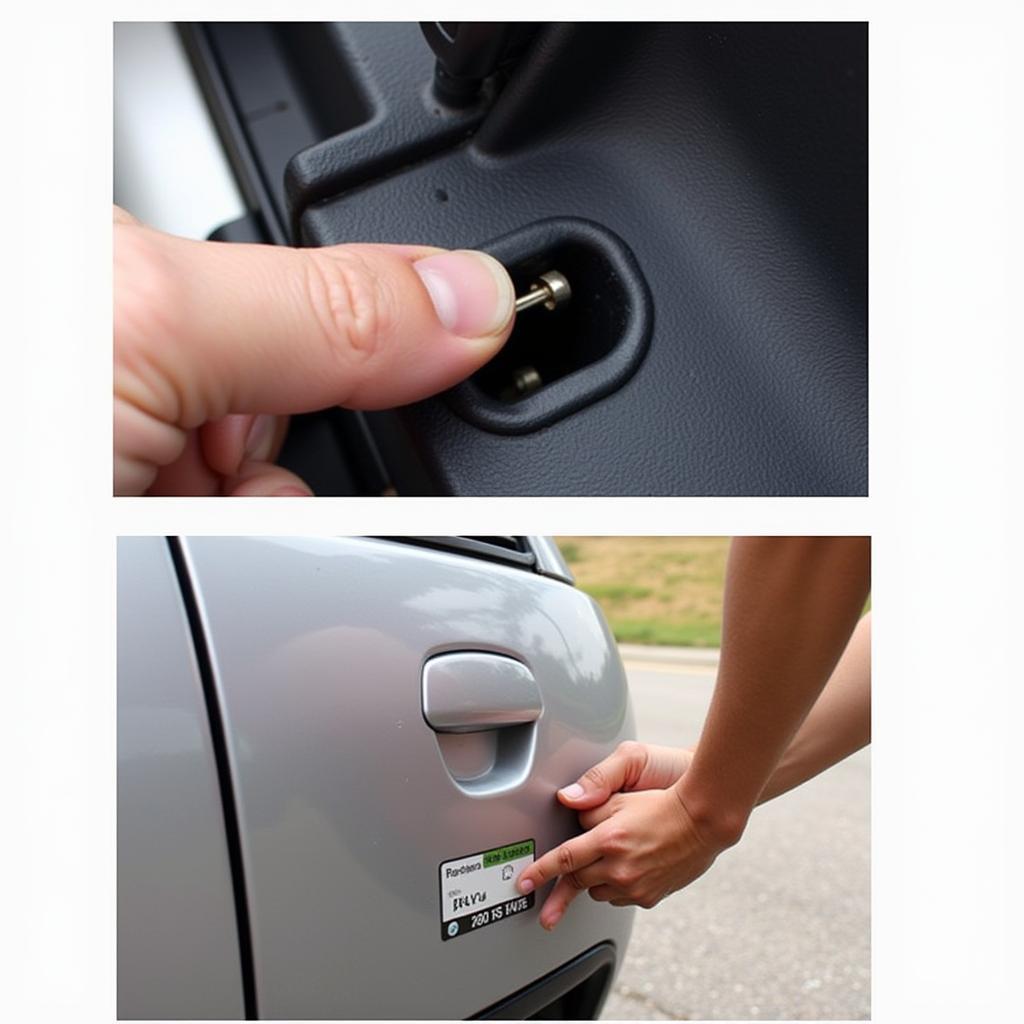Understanding your car details is crucial for various reasons, from insurance and maintenance to selling or even just showing off your prized possession. Knowing where to find this information and what it signifies can save you time, money, and potential headaches. This article will guide you through everything you need to know about accessing and understanding your car’s vital statistics.
Finding your car details isn’t always straightforward. There are several places to look, each providing different levels of information. Your car’s Vehicle Identification Number (VIN) is a great starting point, acting as your car’s fingerprint. This 17-character code unlocks a wealth of information about your vehicle’s history, specifications, and even potential recalls. Your vehicle registration document (V5C in the UK) is another vital source, containing key details like the make, model, and registered keeper. But what exactly are these “car details” and why are they so important?
Decoding Your Car’s DNA: Essential Details Explained
Your car details encompass a wide range of information, each playing a crucial role in your ownership experience. These details fall into several key categories:
Identification: The Basics
This includes the make, model, year of manufacture, VIN, and registration number. These details are fundamental for identification purposes, especially in legal or insurance situations. Imagine trying to report your car stolen without knowing its registration!
Technical Specifications: Under the Hood
This category dives into the mechanical heart of your car. Engine size, fuel type, transmission type, and even the number of cylinders are all part of this. Knowing these details can be invaluable when ordering parts or seeking specialized mechanical advice.
Ownership and History: The Story of Your Car
This section covers previous owners, service history, any outstanding finance, and accident records. A comprehensive history can significantly impact the resale value and provide valuable insights into the car’s overall condition. For example, regular servicing documented in the history can be a strong selling point.
Where to Find Your Car Details: A Comprehensive Guide
Knowing where to look for your car details can save you valuable time and effort. Here are some key sources:
- V5C Registration Document: As mentioned earlier, this is a primary source of information. Keep it safe and secure! Need help understanding your car registration? Check out how do i know my car registration details.
- VIN Plate: Usually located on the dashboard or driver’s side doorjamb, the VIN plate provides a readily accessible source for your VIN.
- Online Databases: Several online platforms offer vehicle history checks using the VIN or registration number. These can be especially useful when buying a used car. Looking to learn more about a used vehicle? See how can i get details on my used car.
- Insurance Documents: Your insurance policy will also contain key car details. For more information about your insurance, check how to check my car insurance policy details.
- Service Records: These records not only document maintenance but often include key vehicle specifications.
Why Are My Car Details Important?
Knowing your car details is more than just having information; it empowers you as a car owner.
Insurance: Getting the Right Coverage
Accurate car details are crucial for obtaining accurate insurance quotes. Providing incorrect information could lead to invalidated claims.
Maintenance: Speaking the Right Language
Knowing your car’s specifications ensures you get the correct parts and service. This can prevent costly mistakes and ensure optimal performance.
Resale: Boosting Your Car’s Value
A comprehensive history can significantly increase your car’s resale value. It demonstrates transparency and builds trust with potential buyers. Need to update your registration? Find out how do i change my car registration details.
 Checking the Car’s VIN Number
Checking the Car’s VIN Number
Legal Matters: Proof of Ownership
Your car details serve as legal proof of ownership. This is essential in cases of disputes, accidents, or theft. Learn more about accessing your car details on how to know my car details.
“Having access to comprehensive car details is like having a cheat code for car ownership,” says automotive expert, James Miller, from the Institute of Automotive Engineering. “It empowers you to make informed decisions and avoid potential pitfalls.”
Conclusion
Understanding “What Are My Car Details” is essential for every car owner. From ensuring proper insurance coverage to maximizing resale value, these details play a vital role throughout your ownership journey. By knowing where to find and how to interpret these details, you can confidently navigate the complexities of car ownership.
FAQ:
- What is a VIN? A Vehicle Identification Number (VIN) is a unique 17-character code that identifies your vehicle.
- Where can I find my car’s registration number? Your car’s registration number is on your V5C document and often displayed on the vehicle’s number plates.
- Why is my car’s service history important? A complete service history can increase your car’s resale value and provide insights into its maintenance.
- How can I check for outstanding finance on a used car? You can check for outstanding finance through online vehicle history check platforms.
- What information is included in my car’s technical specifications? Technical specifications include details like engine size, fuel type, and transmission type.
- What should I do if I lose my V5C document? You should contact the DVLA (Driver and Vehicle Licensing Agency) to request a replacement.
- How do I find out about potential recalls for my car? You can check for recalls using your VIN on the manufacturer’s website or through government agencies.
Need more assistance? Contact us via WhatsApp: +1(641)206-8880, Email: [email protected]. Our customer service team is available 24/7.

Leave a Reply